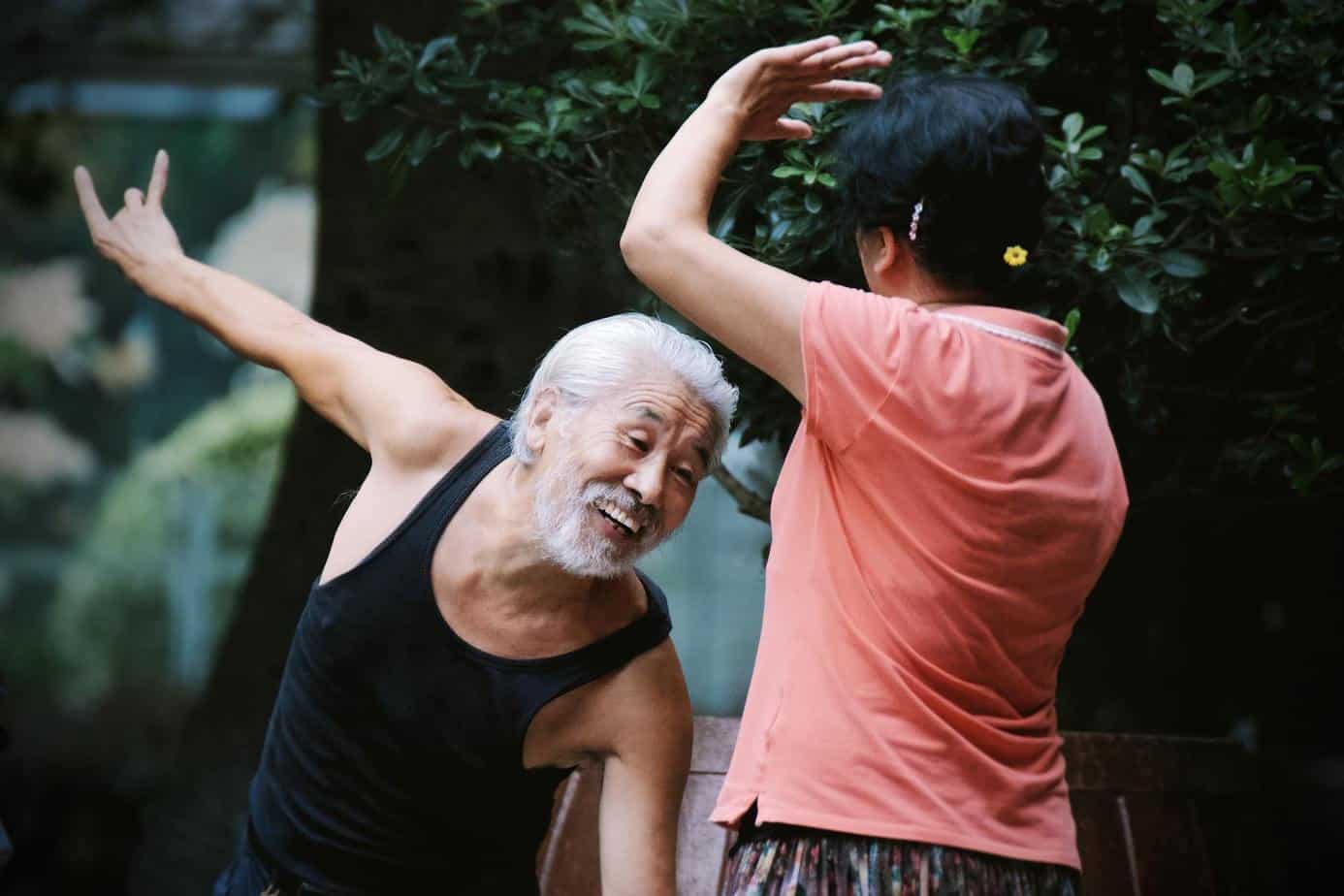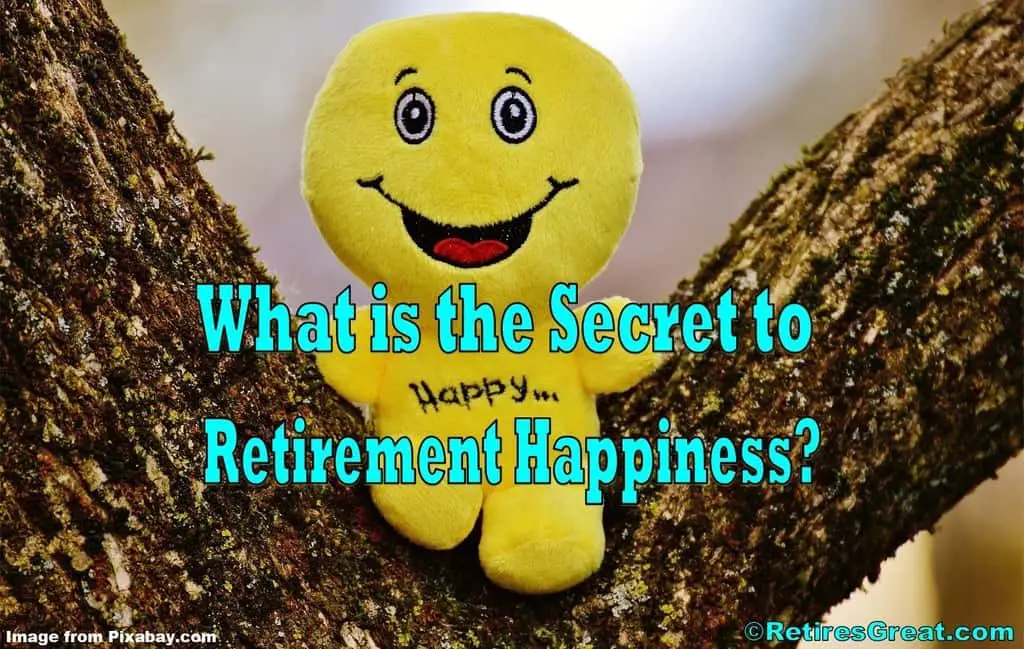You might believe your retirement happiness is dependent upon how much money you saved. Maybe you're concerned you'll outlive your savings.
While sufficient wealth is important for a comfortable lifestyle, the truth is money doesn’t buy lasting happiness! In fact, supportive healthy relationships are by far the greatest factor to living a longer, happier life.
Moreover, it has always been people and not things that matter most. Harvard research conclusively documents that good relationships are the key to happiness.
Robert Waldinger presented research of an exhaustive study of 724 men over and eight decade period (75 years). The key findings include:
- It turns out that people who are more socially connected to family, friends, and community are happier. In addition, they are physically healthier and live longer than those less connected.
- It's not the number of friends or being in a committed relationship, but the quality of those close relationships that matters. Living in the midst of conflict is really bad for our health. High conflict marriages without much affection turn out to be worse than getting divorced.
- The people the most satisfied in their relationships at age 50, were the healthiest at age 80.
- Good relationships appear to protect our brains with less cognitive decline and sharper memories.
We're social beings and need interaction with others. In today's growing technological world, loneliness is becoming more prevalent.
Furthermore, it could be argued through social media we have more friends than ever before. On the contrary, the quality of these relationships is debatable.
Marriage and Partner Relationships
We would like to think our "significant other" will be by our side throughout our Golden Years, both of you enjoying happiness in retirement.
Still, very few couples can spend all their time together without starting to get under each other's skin. Even happily married couples will go through an adjustment period if they are together 24/7.
Even the smallest of things, such as household chores, can quickly become a festering source of irritation and resentment. Each partner has expectations and desires that need to be discussed with common ground found.
Differing expectations and a lack of communication will create problems as the following example portrays:
She eagerly anticipated the day she could join her now retired husband and the wonderful things they would do together. To her dismay, she discovered that for the past year and a half he had spent his days watching TV and playing on his phone. Her frustration and anger erupted when he stated that he had no intention of changing and just wanted to be left alone. That was not how she envisioned her retirement!
Expectations
Make sure to discuss with your partner what you each want for retirement happiness so there are no surprises.
We're witnessing an alarming increase in "gray divorce" as couples realize they have grown apart. Some couples have taken each other for granted and let things slip over the years.
They were immersed in careers and family raising. Often there are unresolved issues or underlying marriage problems that have been ignored and now need to be addressed.
Happy retired couples do many activities together. Examples are going for walks, playing golf, and dancing. Healthy relationships also require some separation with external interests for each partner.
Specifically, this is done by establishing some boundaries for personal space / time. Empowering each other to pursue separate hobbies and activities is beneficial. Retirement is an opportunity to improve upon your marriage, rekindle passion, and create new memories.
Retired Singles
Many retirees are single by choice which is certainly better than being in a toxic relationship. With a strong social circle of friends and family, these singles may be happier than many of their married counterparts. Read more at Why Retirement as a Single Person Isn't a Bad Thing.
Others may desire a life partner and with their freedom of time, there are many more opportunities to socialize with new people. The Internet and social media open up almost limitless options of finding those with similar values and lifestyles.
Keep active, don't get discouraged, and open yourself to different possibilities. Certainly, it'll be an adventure getting out there and meeting others!

Keep it fun and you'll develop a network of new friends. Who knows, when you least expect it, you could meet your potential future mate.
Family - Love Them or Hate Them
“Blood is thicker than water” is a common expression conveying the importance of families sticking together. Family, usually, supports each other with numerous examples of the sacrifices we make for each other.
For example, over half of all parents have financially helped their children (for more details, see Baby Boomer Facts). This includes getting them through college, entering a challenging job market for new graduates, or moving back home when in difficulty.
As our parents age, the majority of us provide assistance as best we can with some of us even taking on the role of care giver. During our busy work years, we may not have shared the quality time we should have with those that most matter to us.
Getting the family together for Thanksgiving or Christmas is great. However, children grow up far too quickly and siblings move away. Retirement provides the opportunity to deepen relationships with adult children, grand kids, and other family members.
Family can help or hinder your retirement happiness. “You can choose your friends, but not family”, is another common expression. This reflects the strife that can develop within a family.
The introduction of extended family members such as in-laws and their family members always adds new levels of complexity.
There might be smoldering resentments or even outright dislike that has created a family rift. Conflict may have erupted in a heated moment that neither side is willing to resolve.
Relationships
Maintain active relationships with friends and family. They are the key to retirement happiness.
Friendships
During our working years, we had daily social interactions with co-workers, neighbors and many others. If you have children, this likely included other parents, teachers, coaches.
As a result, without any effort, you were immersed into a vast social network. We were busy and many of us didn't have time nor desire to cultivate deeper friendships.
Yet upon reaching retirement, you realize how limited your social connections have become. Unless effort is made to nurture and grow our social circle, it'll erode over time affecting retirement happiness.
Best Friends
Most friendships start out casually and may, over time, grow into close relationships. You may be fortunate to have several of these which you, typically, can count on one hand.
You know they'll be there when you're in need and vice versa. These are your closest friends and you trust them even with the most personal information that you would not share with others.
There's the unspoken mutual acceptance that the friendship will last through thick and thin. Unfortunately, life events can weaken even these relationships. Some of these include:
- Loss of spouse / significant other either through break up, long-term illness, or even death. Grieving the loss of a partner often dramatically changes social interaction with others. The grieving process is different for each of us and the friendship may fade away.
- Health issues such as hearing loss, mobility issues, and chronic pain make it more difficult to maintain social interactions. Unfortunately, it becomes easier just to stay at home.
- Moving whether it is across the city, across country, or to a new country will change the dynamics. Distance can strain friendships.
- Money becomes a factor if you can't afford to participate in the activities of your friend. Simply put, it's beyond your financial means to live the same lifestyle if you're, for example, unable to go on that dream vacation with them.
Casual / Work Friends
Casual friends are those you see from time to time based on mutual convenience. They can be someone you share a common interest with or another couple that are fun to be with.
These people enrich your life by bring different ideas providing balance and variety increasing your retirement happiness. They can offer fresh perspectives than you might not have with family or close friends.
You have spent many hours with colleagues at your job. However, many that you consider friends will dissipate the day you leave .
Once the common purpose of work is gone, it'll take effort from both sides to maintain the friendship. For more information, see Loss of Work Friends After Retirement.
Importance of Pets
Your retirement happiness could depend upon your pets. Our furry friends provide us with companionship, unconditional love, and are great listeners.
Even when we're down, their presence helps keep our spirits up. Besides helping us feel good, they actually improve our health by reducing our stress levels.
They, also, reduce feelings of loneliness and keep us more active. It's interesting to note that walking a dog makes you more approachable to others and it's easier to meet and speak with others.
That is, of course, unless you have a snarling Doberman straining on the leash.
Social Interaction
The hustle and bustle of modern society seems more impersonal than previous generations. As children, we were taught not to speak to strangers and it has carried over into adulthood.
It's ironic that as the population increases, we cocoon ourselves and do not even know our neighbors. In contrast, when we're on vacation, everyone seems friendlier and it becomes easier to meet people.
Each of us has different needs and for some, daily interaction is desired. For others, getting out once a week is sufficient. However, it requires action on your part to ensure your needs are met.
Waiting for others to include you can be interpreted as neediness. There are many ways to expand your social life. These include:
- Part-time job getting you out of the house, interacting with others, plus making some extra money.
- Follow-up on an interest and join a group. For example walking, sports, book club, gardening, wood working, etc. The list is endless.
- Volunteering can be a great way to get more social interaction with the added benefit of contributing to your community.
- Retirement centers often run daily activities to keep retirees active.
Even when surrounded by others, feelings of loneliness can develop. If it becomes acute, it can spiral into depression. For those with health issues such as mobility, vision / hearing impairments, and chronic pain, this limits the ability to get out.
Closing Thoughts on Retirement Happiness
Research indicates that people with good supportive relationships live longer, healthier lives. The diversity of these connections keeps life interesting.
Ultimately, the keys are the people in our lives and the quality of our relationships.
References:
Waldinger, Robert (2016 January 25) TED talk “What makes a good life? Lessons from the longest study on happiness”.
Waldinger, Robert (2017 June) Harvard Health “Can relationships boost longevity and well-being”?

